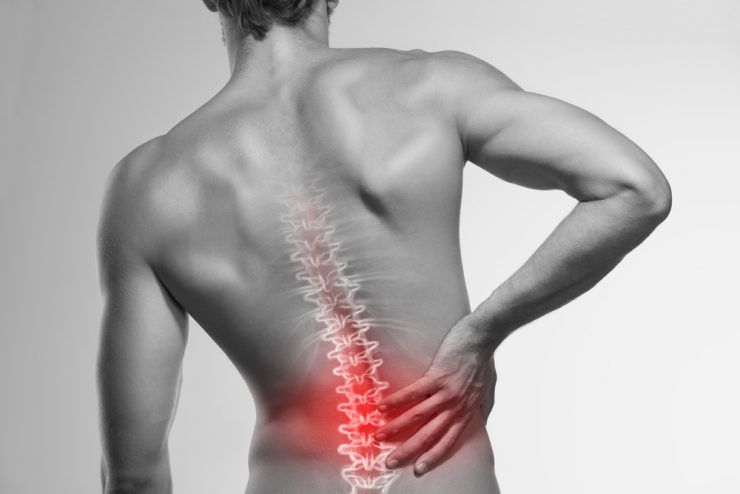Backpain strikes us all from time to time and for some it can be seriously debilitating putting a damper on daily life.
Surgery and medication are not the only painkilling options. There are alternatives. Editor Jane Garton investigates.
If you are one of the 10 million people in the UK who suffer with persistent backpain this may be of interest. Recent research published in the Journal of the American Medical Association[i] suggests that the solution may lie with fixing how the brain and the body communicate rather than with surgery and medication.
The link between the body and the brain

The research team involving scientists from Australia, Europe and the US recruited 138 participants with chronic low back pain, testing one group with a novel method called graded sensorimotor retraining intervention (RESOLVE) and the other with things like mock laser therapy and non-invasive brain stimulation. The results showed that the RESOLVE group reported a significant improvement in pain intensity at 18 weeks. “People were happier, they reported their backs felt better and their quality of life improved,” said study lead author James McAuley.
How the link changes over time

Communication between the brain and the back changes over time if you have chronic lower back pain leading the brain to interpret the signals from the back differently and change how the body moves. It is thought that these neural changes slow down recovery according to the Australian researchers.
“Over time the back becomes less fit and the way the back and brain communicate is disrupted in ways that seem to reinforce the notion that the back is vulnerable and needs protecting. The treatment we devised aims to break this self-sustaining cycle,” commented McAuley.
It is still early days and the researchers stressed that this novel method needs to be tested on other patients and conditions but watch this space.
If you suffer with backpain read on for some tips to help ease it:
Try herbs
There are some wonderful herbs that have great anti-inflammatory actions to help reduce pain and inflammation. Great choices include devil’s claw, turmeric, ginger, white willow bark and frankincense. Supplements such as glucosamine and chondroitin can also help maintain the integrity of our joints and reduce further damage.
Tackle stress
Relaxation techniques, talking treatments such as CBT (cognitive behavioural therapy) and mindfulness can help ease tension and pain by re-training the brain.
Ice it
If there’s an obvious cause of pain, for example a fall or a pulled muscle, apply an ice pack for 10 minutes several times a day to reduce inflammation and swelling.
Keep moving
Stay active and carry on as normal to avoid muscles seizing up or, worse still, weakening. Gentle walking and swimming are good options.
Pace yourself
Balance activity and rest but beware being too sedentary – and that includes bed rest.
Pay attention to posture
Investigate Alexander Technique, Pilates, and yoga classes near you. They can all help correct poor posture which can strain muscles and ligaments.
Walk tall
Imagine an invisible cord pulling you up from the top of your head to the ceiling. Try not to slouch or hunch your back.
Sit tight
Tuck your bottom into the seat of the chair; make sure the bottom of your back is well supported (use a rolled-up towel if necessary) with your feet on the floor or stool.
Lose weight
While maintaining a healthy weight won’t guarantee a pain-free back, it could reduce your risk of problems, as well as benefiting your health in general.
Carry carefully
If you are carrying shopping bags or luggage, try to distribute the weight evenly on both sides of your body.
Use a keyboard
If you work on a laptop invest in an external keyboard and place your laptop on some magazines or get a monitor arm or screen raiser.
Watch point
If your backpain lasts longer than six weeks and is especially debilitating, ask your GP to check it out. You should also consult your doctor if the pain is accompanied by symptoms such as fever or pins and needles or you feel unsteady on your feet.
[i] JAMA. 2022;328(5):430-439. doi:10.1001/jama.2022.9930















Add comment